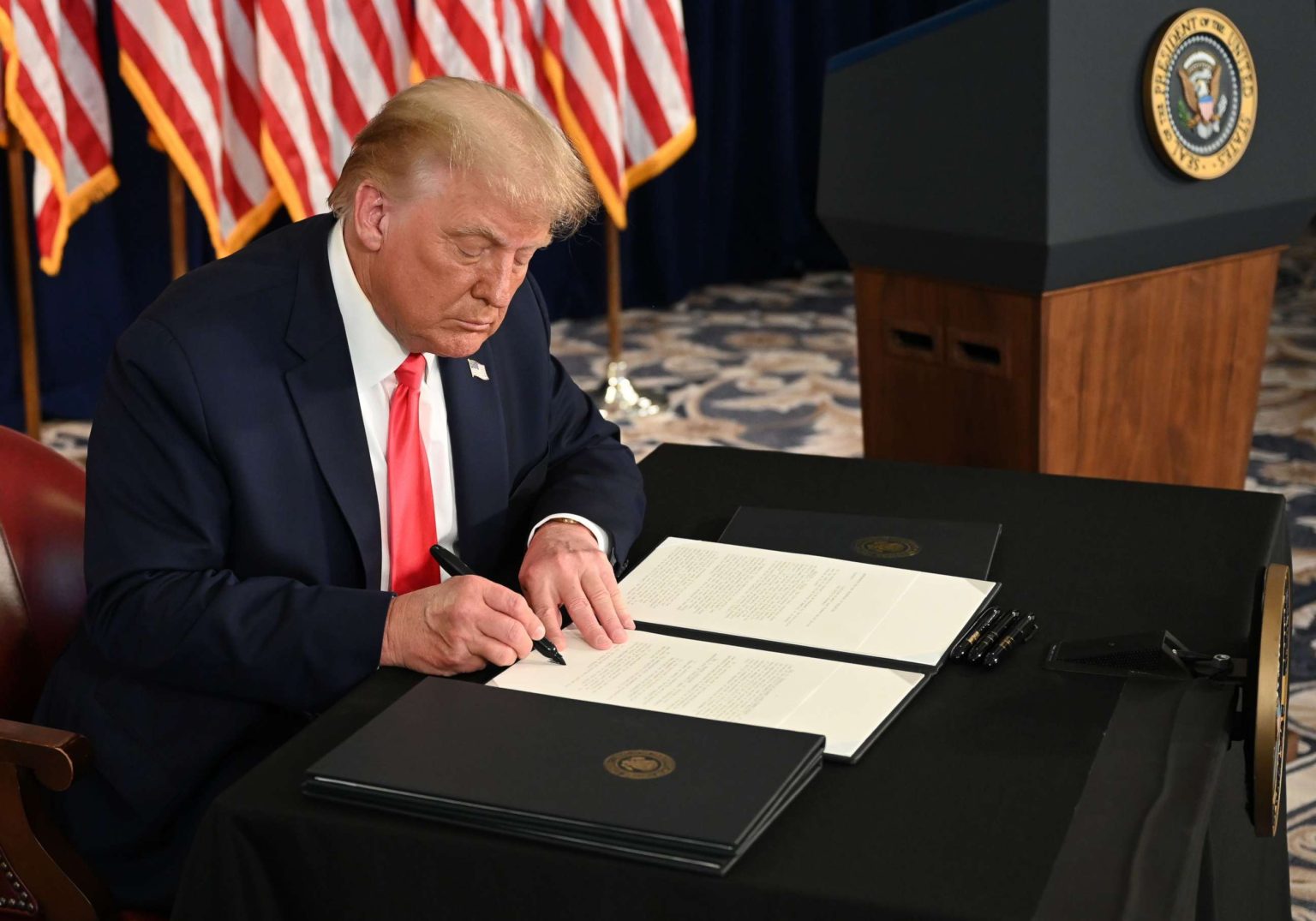By Eniola Amadu
President Donald Trump has signed an executive order to eliminate cashless bail nationwide, threatening to cut federal funding for jurisdictions that use the system.
The decision is part of White House strategy to put crime control at the forefront of the national agenda.
A separate order specifically targets Washington, D.C., directing police to charge suspects with federal crimes and detain them in federal custody to bypass cashless bail.
“Cashless bail—we’re ending it. But we’re starting by ending it in D.C., and that we have the right to do through federalization,” Trump said.
The president has also taken temporary control of Washington’s police force, and authorized NatCarry Guard troops to carry weapons on city patrols, warning that he could extend military presence to Democratic-led cities such as Baltimore and Chicago.
The order specific to D.C. calls for further measures, including potential limits on federal funding, services, and approvals. Trump initially previewed his stance earlier this month when he announced the temporary federalization of D.C.’s police force, describing the city’s cashless bail policy as a “disaster.”
Cashless bail allows defendants to be released from jail while awaiting trial based on a promise to appear in court, rather than posting a cash bond.
Critics, praises trail Trump actions
However, critics have condemned the administration’s actions as federal overreach, while supporters see it as part of Trump’s “tough on crime” strategy, which is expected to play a key role in Republican efforts to maintain control of Congress in next year’s midterm elections.
Also, opponents argue it reduces defendants’ incentive to return for trial and jeopardizes public safety. Advocates say it prevents low-income individuals from being unfairly detained simply because they cannot afford bail.
The nationwide directive instructs the U.S. Attorney General Pam Bondi to compile a list of states and localities with cashless bail policies and identify federal funds that could be “suspended or terminated,”.
Washington, D.C., was among the first U.S. cities to significantly abolish cash bail in the 1990s, opting instead for judicial risk assessments to determine pretrial release.
Illinois has fully abolished cash bail entirely, while states such as New York, California, and New Jersey have implemented significant reductions to the practice.



